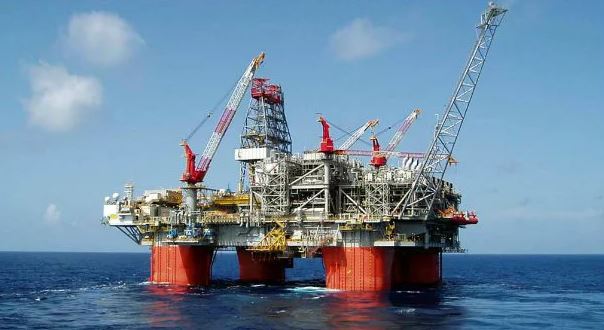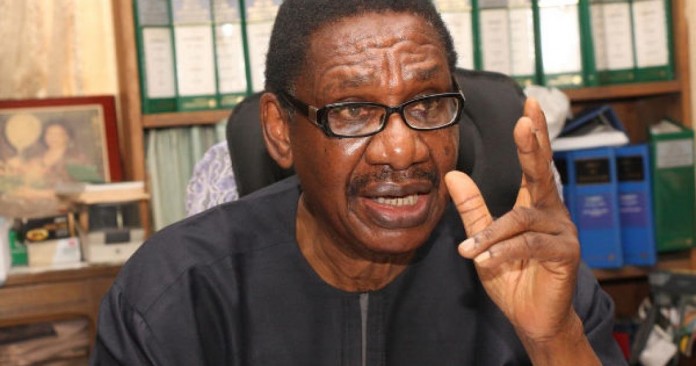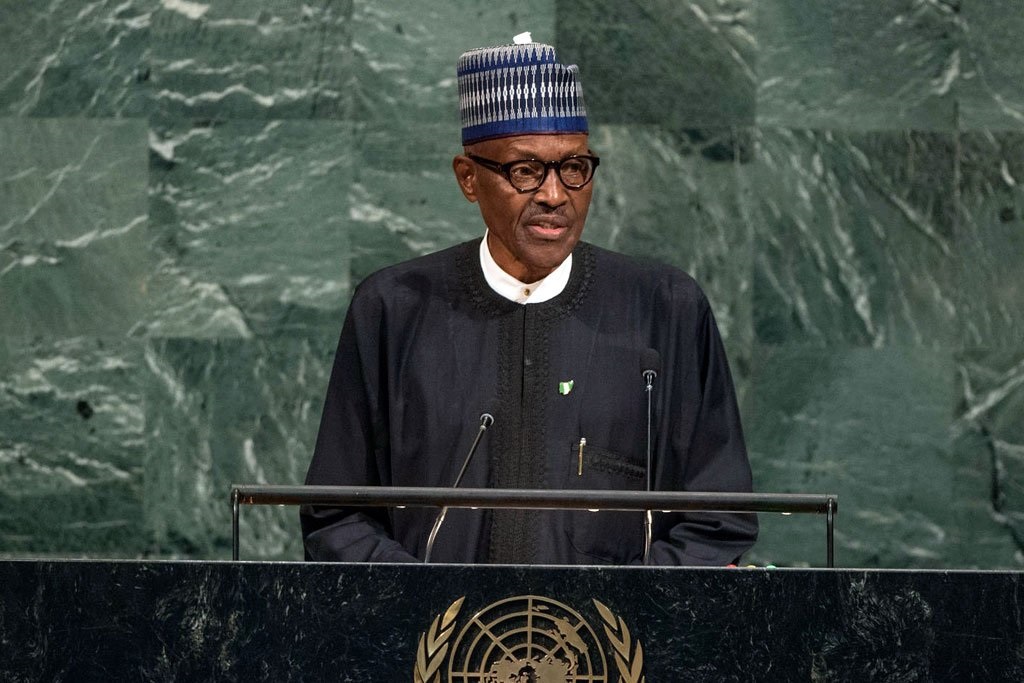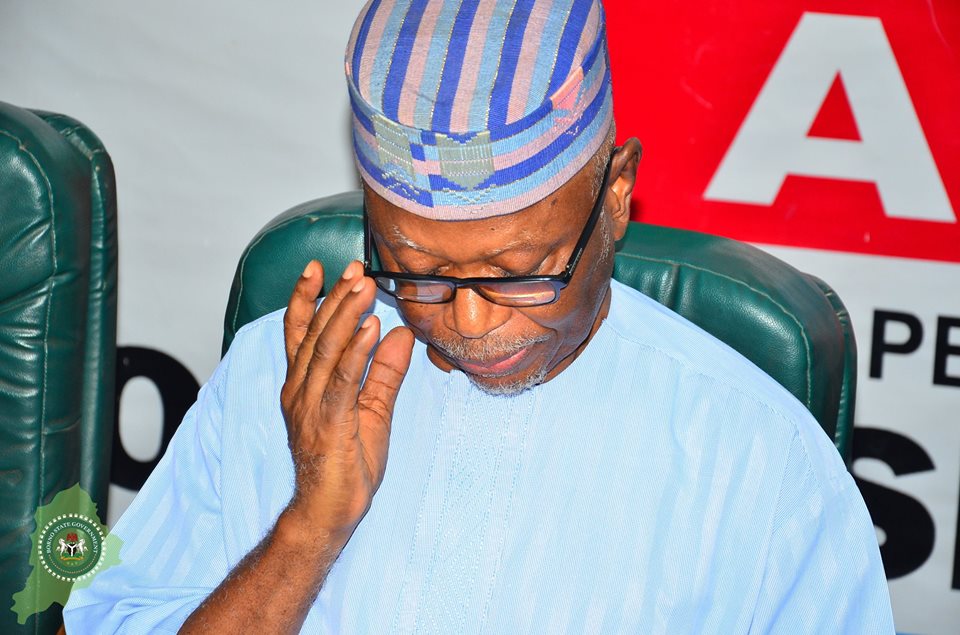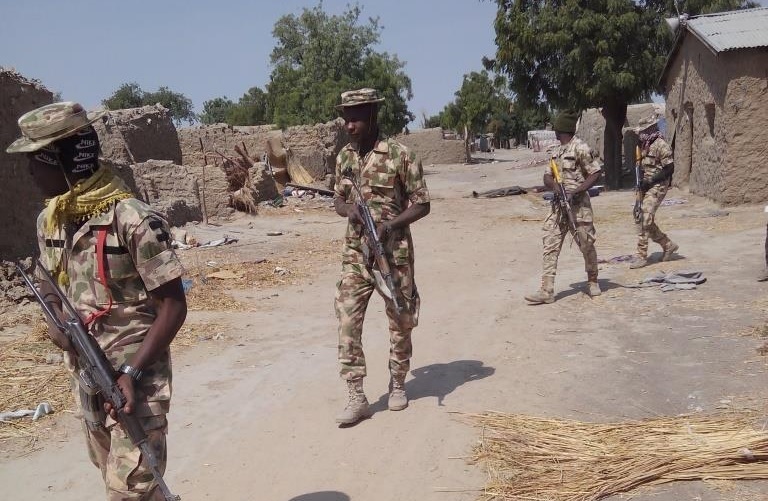Permit me to start by commending the family of late Alhaji Dauda Adegbenro and the governing board of the Dauda Adegbenro Foundation for keeping alive the memories and legacies of the late frontline politician. I also want to commend you for taking an approach that promotes human capacity development and reasserts the place of ideas in national development.
Beyond those familiar with the life and times of the late politician and the roles he played in the build-up to independence and at a critical period in post-independent Nigeria, the work of the foundation offers a great opportunity not only for the younger generation to know about him and others in his generation and about their sacrifices and contributions but also for all—the young, the not-so-young, the old and the not-so-old—to continue thatcritical conversation about, and the search, for the good society. I must also thank you for inviting my very humble self to be part of this on-going and important conversation about nationalwell-being. I cannot thank you enough.
I have been asked to speak about “Transparency in the Extractive Sector: Driving Wealth Creation and Sustainable Revenue as Solution to Economic Recession”. Since we are technically out of recession, I feel it would be more useful to talk about how we can use our natural endowments to drive economic recovery in Nigeria and to also talk about other things we need to do to ensure that the attendant growth from the primary advantage granted by resource endowment is deepened, sustained, and shared. I will pursue two theses in this intervention: one, our natural resource endowments can translate to real and sustained prosperity only if we maximise the opportunities they offer and only if we manage the revenues derived from them in a prudent, transparent and accountable manner. In our almost 60 years of independence, we have not done that. Two, and somewhat contradictorily, we need to look beyond natural resources for our development. The wealth of nations, it is now established, is not under the ground but over it.
Nigeria and the Paradox of Plenty
Advertisement
In terms of natural resource endowments, our country could as well be the biblical Promised Land, a land flowing with milk and honey, just that the milk and the honey have not been appropriately harnessed to nourish and benefit the mass of our people. Nigeria is richly endowed with oil and gas, still highly prized sources of domestic and industrial energy across the globe. With 37.1 billion barrels of proven oil reserves, Nigeria has the 11th largest oil reservesin the world and is the world’s eighth largest exporter of crude oil. The first level of paradox is well known: Nigeria exports crude oil and imports refined petroleum products to meet most of its local needs. The total installed capacity of our four refineries is 445, 000 barrels per day, with actual utilisation sometimes below 20%. A quick comparison with Singapore can help with perspective. Singapore has a population of 5.6 million people (compared to ours of 186 million), produces a little over 20, 000 barrels of crude oil per day (compared to ours of average of 2 million barrels per day), is the 78th producer of oil in the world (compared to ours at 8th) but has an oil refining capacity of 1.54m barrels per day (compared to ours that could be lower than 100,000 barrels per day). Nigeria is sometimes described as a gas country that has some deposits of oil. With proven gas reserves of 180.1 trillion cubic feet, we have the 9th largest gas reserves in the world. Though gas utilisation is improving, a very significant proportion of our associated gas is flared, with dire implication not just on the people and the environment but on prosperity in terms of lost electricity and income. According to figures from the Nigerian National Petroleum Corporation (NNPC) and the Department of Petroleum Resources (DPR), though gas flaring was slashed by 26% within ten years, sum of $850m and 3500 megawatts of electricity were lost to gas flaring in 2015 alone. Despite being a major oil and gas producing country for 60 years, it is clear that we have not fully optimised and maximised the opportunities in the oil and gas value chain.
The picture is grimmer in the solid minerals sector, where Nigeria is blessed with large deposits of 44 different minerals spread across the country. According to data from the Ministry of Mines and Steel Development, Nigeria has, among others, 639 million metric tonnes proven reserves of coal but production is only at 0.04 million metric tonnes; has 3 billion metric tonnes proven reserves of iron ore but production is only 0.07 million metric tonnes; has 5 million metric tonnes proven reserves of lead/zinc but production is at 0.6 million metric tonnes; has one million metric ounces proven reserves of gold but production is 0.14 million ounces; and has 568 million metric tonnes proven reserves of limestone but production only at 11 million metric tonnes. Thus, despite the abundance of solid minerals in the country, production has been low and the sector has contributed minimally to national output. Solid mineralsector, according to the NBS, only accounted for 0.12%of GDP and 1.45% of total non-oil exports in 2015. Remember for a moment that Nigeria used to be a major mining country, that some of our cities developed around solid minerals (Jos, the Tin City; Enugu, the Coal City), and that the solid minerals sector used to be a major employer of labour and used to contribute about 5% to our GDP in the ’60s.
Partly because of low optimisation and largely because of governance issues, natural resource endowment has not translated to prosperity for the mass of Nigerians. Nigeria has one of the lowest development indicators in the world. The 2016 UNDP Human Development Report, which measures human development in terms of educational attainment, life expectancy and per capita income ranked Nigeria 152 out of 188 countries, behind South Africa, Kenya, Gabon and Ghana, and not among the top 20 in Africa. In a related vein, data from NBS show that the period between 1980 and 2010 witnessed a steady increase in poverty rate in Nigeria. While 27.2% of Nigerians were considered poor in 1980, this increased to 46.3% 1985 then 69% in 2010. In raw figures, the number of Nigerians adjudged to be poor increased from 17.1 million in 1980 to 112.47 million in 2010, an increase of 558%. The massive inflow of rents from the oil sector has not made a positive dent on human welfare in Nigeria. This illustrates not just the paradox of poverty in the midst of plenty but has turned Nigeria into the most cited example of the phenomenon of resource curse.
Advertisement
Table 1: Comparison of Human Development Indices
| Human Development Index (HDI) | Life expectancy at birth (years) | Expected years of schooling (years) | Mean years of schooling (years) | Gross national income (GNI) per capita (2011 PPP $) | |
| Nigeria | 0.527 | 53.1 | 10.0 | 6.0 | 5,443 |
| Developing countries | 0.668 | 70.0 | 11.8 | 7.2 | 9,257 |
| Sub-Saharan Africa | 0.523 | 58.9 | 9.7 | 5.4 | 3,383 |
| World | 0.717 | 71.6 | 12.3 | 8.3 | 14,447 |
| Least developed countries | 0.508 | 63.6 | 9.4 | 4.4 | 2,385 |
Source: Human Development Report 2016
Table 2: Trends in Poverty Incidence in Nigeria
| Advertisement Year |
Poverty Incidence (%) | Estimated Population (million) | Population in Poverty (million) |
| 1980 | 27.2 | 65 | 17.1 |
| 1985 | 46.3 | 75 | 34.7 |
| 1992 | 42.7 | 91.5 | 39.2 |
| 1996 | 65.6 | 102.3 | 67.1 |
| 2004 | 54.4 | 126.3 | 68.7 |
| 2010 | 69.0 | 163 | 112.47 |
Source: NBS
Resource Curse: A Paradox Foretold
Ordinarily, natural resources should be synonymous with blessings. So the idea of resources and curses occurring together in the same sentence and in reality is not only an oxymoron but the very definition of paradox. But it is real. The story of many resource-intensive countries, including ours, has amply and sadly demonstrated this. Beyond anecdotal evidence or the conflation of coincidence with causality, it has been proven empirically by Jeffrey Sachs and others that resource-rich countries mostly perform worse economically than those not similarly endowed.
True, there are a few resource-rich countries that have escaped resource curse. But these countries—such as Norway, Canada, Malaysia, UAE and Botswana—are the exceptions rather than the norm. The exceptions have however also shown that resources do not come studded with curses. It is the risks and choices that resource-endowment predispose the ruling elites and the larger societies of resource-intensive countries to that turn natural resources from potential enablers of prosperity to uncanny facilitators of poverty. Resource-intensive countries are usually prone dependence, delusions and distortion, three afflictions which translate to high levels of corruption, incessant conflicts and a dysfunctional ethos of politics and society and ultimately to poor economic outcomes.
Advertisement
The first of such afflictions manifests in the form of what is called the Dutch Disease. Deriving its name from the paradoxical outcome of the discovery of large gas reserves by the Netherlands in 1959, this concept describes what could happen when a country experiences sudden and massive inflow of foreign exchange because of the high price of its natural resources in the international market. This is likely to result in raising the value of the country’s currency but with the net and negative effect of making its other exports expensive and therefore non-competitive and imports relatively cheaper. This in turn creates what is called the crowding out effect, where the export of natural resources crowds out other sectors of the economy such as agriculture and manufacturing and which are in turn crowded out by cheap imports. The country ultimately becomes a mono-cultural economy, depending on the valuable natural resource for its export, for most of its foreign exchange and for government revenues. In addition, the country becomes dependent on imports to meet most of its household and industrial needs. Does this sound like a country we all know? This double-dependence would not be a problem as long as the price of the primary product stays high. But it is also a known fact that commodity prices fluctuate and despite the existence of cartels such as OPEC that try to constrain supply to keep prices high, resource-dependent countries are price takers and prone to be boom-and-bust cycles.
Resource-dependent countries are thus usually advised to save during boom times as insurance against bust times. Another common prescription is for resource-dependent countries to deliberately diversify their export and revenue base. But they hardly save for the rainy day and they hardly, beyond lip services, diversify their revenue and export base. This is because the elite and even the citizens of resource-rich countries, flushed with sudden and massive wealth, become deluded. They think the good times will last forever. They take the easy road. They make choices that are not sustainable. They mistake natural wealth for real wealth. But while benefits of booms are usually narrowly confined, the burdens of busts are usually widely dispersed, leading to the kind of economic meltdown that Nigeria is slowly emerging from.
Advertisement
The other affliction of resource-dependence is that it distorts not just the structure of the economy but also that of politics and the society. The economy shifts from a tax and productive economy to an extractive one. This changes the dynamics between the citizens and those in authority, leading to what some have called the unholy pact: “we will not bother you about taxes, and you will not bother us about what we do resource rents.”Transparency and accountability thus go out of the window; corruption not only increases but also becomes the norm. This also changes the organising philosophy of politics from one driven by service to one animated by extraction of benefits for selves and clients. Public office becomes unduly attractive and the intense competition for access fuels conflicts. When revenue uncertainties co-join with low national productivity, high import-dependence, predatory politics, pervasive corruption, and constant conflicts, the vicious cycle of resource curse is complete. But it has also been established that resource curse is not destiny. It is not inevitable.
NEITI: Shining Light in Dark Places, Promoting Prudent Revenue Management
Advertisement
Based on the conviction and the evidence that the onset of resource curse can be averted and its onslaught can be reversed, several propositions surfaced in the academia, civil society and within governments about how to ensure that natural resources aid, and not impede, human development. One of such prescriptions is the Extractive Industries Transparency Initiative (EITI), launched in 2002 by the then UK Prime Minister, Mr. Tony Blair, at the World Summit on Sustainable Development in South Africa. EITI revolves around the idea that regular disclosure of reconciled payments and revenues from the extractive sector will limit the incidence of sharp practices and mismanagement and trigger debate about optimal use of extractive revenues and resources.
Nigeria, under President Olusegun Obasanjo, voluntarily signed up to the EITI in 2003 and started implementation in 2004 with the constitution of the first National Stakeholders Working Group of the Nigeria Extractive Industries Transparency Initiative (NEITI), led by Mrs. ObyEzekwesili. In 2006, NEITI published the first major audit of the oil and gas sector covering the period 1999 to 2004, beaming an intense searchlight on a sector that was renowned for its opacity. In 2007, the NEITI Act was passed by the National Assembly, making Nigeria the first of the now 51 EITI-implementing countries to institutionalise the initiative with a law. The tradition of beaming light in dark places has continued unabated: NEITI has conducted seven cycles of oil and gas audit reports, five cycles of solid minerals audits report and one Fiscal Allocation and Statutory Disbursement Audit. NEITI has pushed the reports in the public domain, partnering with the media and civil society to trigger debate about the audit findings and working with relevant government agencies to remedy the gaps discovered in the operations of the extractive sector. In the last 18 months, NEITI has also introduced three new policy products to stimulate further debates and trigger necessary policy actions on prudent, optimal and accountable utilisation of Nigeria’s extractive resources. These are the NEITI Policy Brief, the NEITI Quarterly Review and the NEITI Occasional Paper Series.
Advertisement
Through NEITI’s reports and interventions, Nigerians now know more about the operations of the sector that, despite low commodity prices, still remains the backbone of their economy. Citizens, civic groups and the media are now better armed with information that they can use to ask probing questions and make informed contributions to governance. Over time, various governments have used information from NEITI’s reports to recover almost $3 billion that would have ended up unpaid. NEITI’s recommendations are driving the on-going reforms in our oil and gas and mining sectors. Nigeria sets the pace among EITI implementing countries, which now include the UK, US and Germany. In 2013, Nigeria was voted as the best EITI implementing country in the world. Different countries, notably Ethiopia and Malawi, have come to Nigeria to understudy how EITI is implemented in Nigeria.
Despite the well-acknowledged progress that our country is making in EITI implementation, Nigeria is yet to escape resource curse. EITI has not failed us. We, especially at moments of high oil prices, failed ourselves. Our country will benefit more from faithfully implementing the recommendations of the NEITI audit reports, which are done at considerable public expense. On-going reforms of the extractive sector deserve special commendation and should be sustained. Yet much more needs to be done to ensure prudent, accountable and optimal use of our extractive resources. I will mention just a few of the issues that have become recurring decimals in NEITI’s audit reports to show the outstanding remedial actions we need to take.
One, we need to know exactly how many barrels of crude oil we produce, not just how many barrels that we export. NEITI’s first audit report (covering the period 1999 to 2004) claimed that Nigeria did not know or could not independently and scientifically state its oil production beyond the say-so of the operators. The situation remains the same, eleven years after that report was released, 59 years after we exported our first vessel of oil and 61 years after we discovered oil in commercial quantity in Oloibiri, in present Bayelsa State. NEITI had recommended the need for multi-phased, calibrated meters at the well-heads, the flow stations and the export terminals. Beyond mere fixation on transparency, knowing what we produce has implications for government revenues, citizens’ welfare and national security. Other countries have invested not only in metering infrastructure but also in digital command centres where they can monitor the status of their oil assets in real time. We should not continue to trifle with a sector that still accounts for bulk of government revenues.
Related to this is the issue of crude losses due to outright theft and deferred production on account of vandalism and sabotage. The Federation share of crude oil losses was valued at $14.2 billion between 2009 and 2013. Lost domestic crude recorded as lost was valued at $1.5 billion within the same period. In 2014 alone, six companies reported crude oil losses valued at $4.1 billion and domestic crude loss was put at $100 million. These are losses at almost industrial scale. Imagine the revenue, welfare and security implications of these losses. Also, there have been losses to uneconomic and sometimes unseemly practices such as Product for Oil Swap, Offshore Processing Agreements and the infamous Strategic Alliance Agreements (SAAs). The country lost $518m and $198.7m to SWAP and OPA in 2013 and 2014 respectively. (This administration has discontinued SWAP and OPA). There are also losses due to failure to act. A major case in point is the failure to review the 1993 Production Sharing Contracts (PSCs) as demanded by Section 16 of the Deep Offshore and Inland Basin Production Sharing Contract Act which states that the terms of the contracts should be reviewed in ways that are economically more beneficial to the country when oil prices cross $20 in real term and 15 years after the 1993 agreements came into effect and five years subsequently. The Honourable Minister of State for Petroleum Resources, Dr. Ibe Kachikwu, recently put the value of the loss incurred on account of the non-review of the PSCs at $60 billion. NEITI has not independently validated this figure. But imagine the implication of $60billion in terms of revenues for the three tiers of government and the potential impact on citizens’ welfare. Also flagged consistently is the low contribution of the solid minerals sector, regulatory uncertainties, and lack of clear fiscal and legal terms in the extractive sector. For example, we have been trying to pass the Petroleum Industry Bill for almost ten years, carrying on as if the world will always wait for us. And then there is the not-so-small matter of revenues withheld or owed by NNPC and its subsidiaries, especially the NPDC. In March this year, NEITI published a policy brief where it put the value of unremitted funds at $21.8 billion and N316 billion. With the way we have managed our extractive sector and our failure to make corrective actions, we should not be surprised that enormous resource endowments have not translated to sustained growth and sustainable human development in Nigeria. NEITI, on its part, will continue to shine the light. But this will not amount to much if others do not do their parts.
Moving from Recession to Sustained Recovery
The extractive sector is roundly implicated in our march into and out of recession. Exposed to the oil and gas sector, at some point, for as much as 95% of exports and 85% of government revenues, our economy was not insulated enough from the well-known volatility of commodity prices and other negative consequences of resource dependence. So when oil prices started falling in September 2014, it was clearly inevitable that our economy would be negatively impacted. That sense of inevitability is underpinned by the following: the price of commodity that is our main source of government revenue and foreign exchange, within a short space, fell by about 75%; we did not use the period of boom to diversify our revenue and export base but rather we expanded public expenditure with the boom; our production plummeted due to militant activities; we did not build up foreign reserves to accommodate fall in foreign earnings from $3.2 billion monthly to as low as $400 million at a point against an import billwhich had ballooned by 519% from N148.3 billion in 2005 to N917.6 billion in 2015; we imported most of our final and intermediate goods, including refined petroleum products (which accounted for 40% of forex demands).
National productivity figures started plunging from late 2014, showing how our economic fortune is unhealthily yoked to movement in oil prices. GDP growth rate went from 5.94% in Q4, 2014 to 3.96% in Q1, 2015, to 2.35% in Q2, 2015 slightly up to 2.84% in Q3 2015 then back down to 2.11% in Q4, 2015 sliding further to -0.67% in Q1, 2016 then to -1.49% in Q2, 2016 when we technically entered recession. After five consecutive quarters of negative growth, national productivity returned to positive territory in Q2, 2017 with 0.55% rate. One of the major reasons we exited recessionwas because of positive growth in the oil and gas sector based on increased oil production and higher oil prices. Oil contribution to GDP in Q2, 2017 was 1.64% from -11.63% of the corresponding quarter of last year and -15.40% of the first quarter of 2017. In a way, we can say that the oil sector took us into recession and took us out of it. No doubt the exit from recession should be celebrated. But as many have said, the growth is still fragile, not widespread or deep enough. We need to be alive to the danger of a double-dip and prevent that from happening. Most importantly, we need to delink our economic fortunes from the fate of oil prices.
I will conclude by saying that for the extractive sector to drive sustainable growth and development in Nigeria, we need to focus on five areas. The first is that we need to fully optimise the opportunities that resource endowments offer and go beyond the easy and lazy approach. For now, we are still scratching the surface. Value optimisation would mean going beyond just exporting crude oil and refining petroleum products for domestic consumption and export, harnessing gas instead of flaring it, and becoming major players in the petrol-chemicals arena. The real value is in value-addition, otherwise we remain price takers and marginal players. It would mean changing the solid minerals sector form an abandoned and artisanal-dominated sector to a major contributor to GDP, to exports, to industrial development and to jobs. Clear and predictable legal and regulatory frameworks, reasonable incentives, and aggressive marketing would be needed. The 7 Big Wins, the Solid Minerals Roadmap, the investment outreaches by the respective ministries and renewed efforts to pass the Petroleum Industry Bill are steps in the right direction and should be seen to the logical conclusion.
While value addition and optimisation would ensure we make more money, they cannot guarantee that the money would not end in private pockets. We therefore need more openness, not less. We need not just revenue transparency but also ownership transparency, contract transparency, expenditure transparency and assets transparency. We need to strengthen NEITI and other agencies and institutions that shine light in dark places and we need to encourage and empower our citizens to ask informed questions. The third arena of work is we need to save against commodity price volatility and natural resource depletion. NEITI’s study into Nigeria’s oil saving funds shows that we don’t have a robust natural resource savings mechanism. The total amount in our three oil savings fund is $3.9 billion, enough to fund only 16% of the 2017 federal budget. Meanwhile, the value of the sovereign wealth fund of Norway, a country of 5.2 million people, hit the $1 trillion mark last week. Without enough savings, we will always be vulnerable. And time is not on our side: our oil will run out in 38 years; the world is rapidly moving beyond oil, as countries embrace electric vehicles and even the oil majors are moving to gas. Yes, there are other uses of oil beyond gasoline and we are more of a gas than an oil country. But the glorious days of oil and even other natural resources seem numbered. We might be lucky to experience another boom before the bottom falls off. Now is the time to optimise, to manage transparently and prudently, and save for the rainy days and the future, whether prices are high or low.
However, we need to come to terms with the reality that a natural resource-led development approach leads to a mirage. From 1981 to 2015, Nigeria earned a total of $715 billion from oil. It is a lot of money, but not an awful lot when you take our population size and developmental needs into consideration. And for perspective, the market value of Apple is $751 billion. That is just one company. So the fourth arena of work is to aggressively restructure our economy and psyche. Malaysia is a good example to follow. Dependence on tin and crude oil gave way to an economy with robust value-adding agriculture, manufacturing and services sectors. We also need to move from a sharing and extractive mind-set to a productive and value-adding mind-set. There is a growing clamour for political restructuring in the country. But beyond tinkering with the form of our federalism, we need to also restructure the substance and spirit of our politics, and more importantly, we need to restructure our economy and our value-system. We need audacious and not necessarily pain-free economic and governance reforms. And last but not the least, we need to invest in the welfare and the productive capacities of our people. We need sustained investment in health, in education, and in critical modern infrastructure that will make our economy more competitive and expand the creative, productive and competitive capacities of our people and by extension, of our country. This is how we can derive optimal benefit from endowment in natural resources, not as wealth in themselves, but as resources for necessary investments in the competitive capacities of our most prized assets: our people.
I thank you for this opportunity and I thank you for listening.
Being a paper by Adio, the executive secretary of NEITI, delivered on 27 September 2017 at the 3rd Annual Lecture of the Dauda Adegbenro Foundation held at the University of Ibadan
Views expressed by contributors are strictly personal and not of TheCable.
Add a comment

